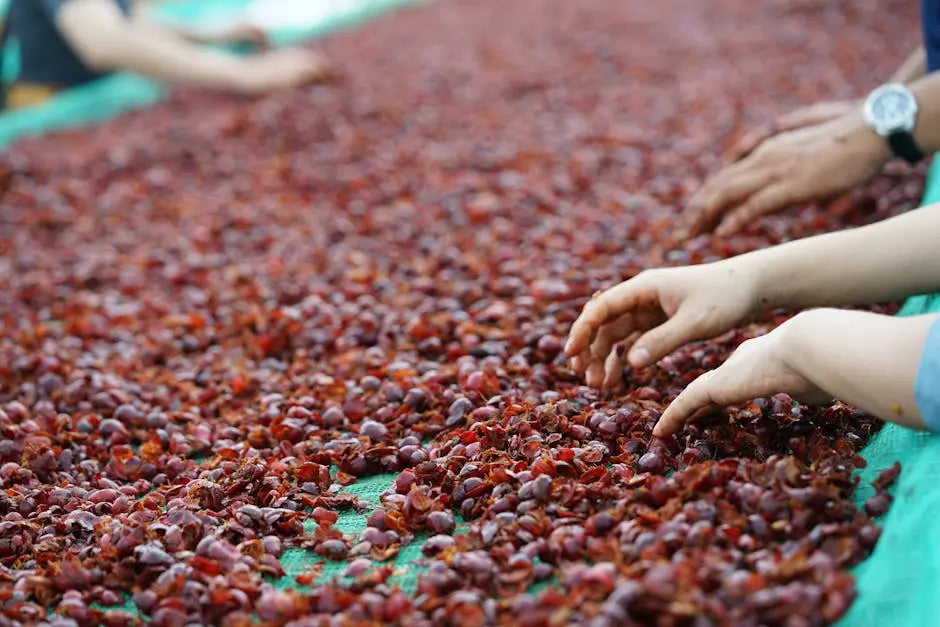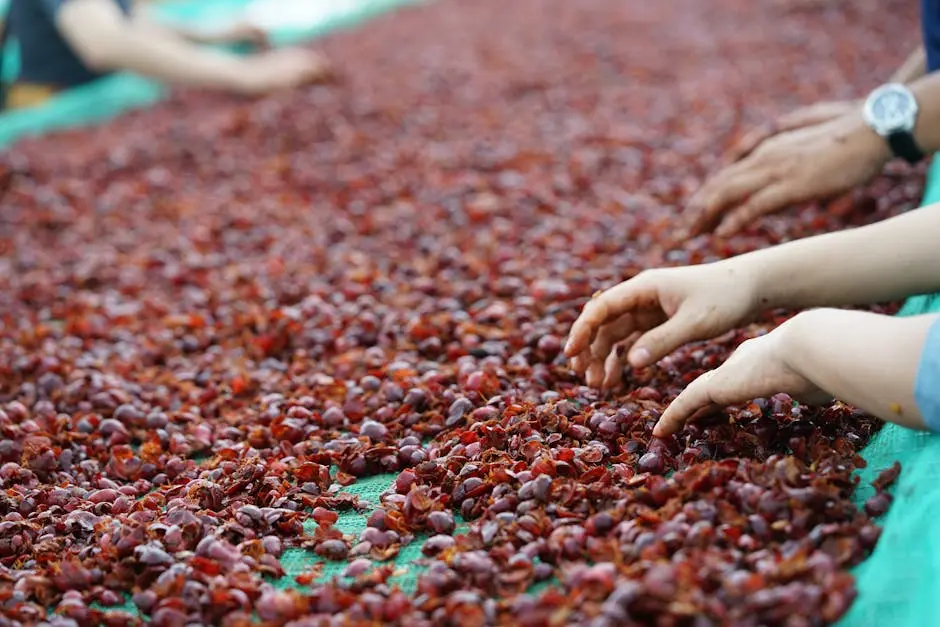
How Does Direct Trade Coffee Benefit Farmers?
Direct trade coffee is more than just a buzzword; it’s a movement that’s transforming the lives of farmers around the world. By establishing a more personal connection between producers and consumers, direct trade coffee offers numerous benefits that empower farmers and enhance their livelihoods.
Understanding Direct Trade Coffee
Learn what direct trade coffee is and how it differs from traditional coffee procurement methods, focusing on the relationships built between farmers and coffee roasters.
In traditional models, farmers often feel disconnected from the end product, resulting in compromises that lower the quality of both the coffee and the livelihood of the farmer. However, with direct trade coffee, farmers negotiate prices directly with buyers, ensuring they receive a fair return.
This relationship isn’t just transactional; it is based on mutual respect and understanding. Roasters offer more than just cash—they provide insights into market trends and help farmers improve their practices. Consequently, you’re not just drinking coffee; you’re part of a community that values quality and ethical sourcing.
Fair Compensation for Farmers
Explore how direct trade ensures that farmers receive fair wages for their crops, enabling them to support their families and communities.
Fair compensation through direct trade coffee means that farmers can not only cover their immediate needs, but also invest in their future. They can afford to send their children to school, invest in healthcare, and partake in local community projects. In many ways, each cup of direct trade coffee contributes to a cycle of prosperity.
The difference is significant—while traditional coffee prices can fluctuate based on market trends, direct trade agreements ensure stability, allowing farmers to plan ahead. By building relationships with roasters, farmers can negotiate prices that reflect the true value of their labor, thus fostering economic empowerment.
As a consumer, your choice of direct trade coffee not only supports fair pay; it champions a movement toward social justice in agriculture, ensuring that the hands that grow the coffee are respected and rewarded.
Transparency and Traceability
Discuss the importance of transparency in the direct trade model and how consumers can trace the origins of their coffee, fostering trust.
In an era where consumers are increasingly concerned about ethical sourcing, direct trade coffee offers transparency. Buyers can trace beans back to their origin, knowing exactly who grew the coffee and how they were treated. This traceability builds trust and accountability.
When you sip a cup of direct trade coffee, you can genuinely appreciate not only its flavor but the story behind it. Each cup represents the hard work of farmers, the unique characteristics of the region it came from, and the ethical standards upheld along the supply chain.
This transparency not only raises consumer awareness but fosters a sense of responsibility. Armed with knowledge, you can make informed choices that align with your values, contributing to a robust economy for farmers who deserve recognition for their hard work.
Access to Resources and Support
Examine the additional resources and support that farmers gain through direct trade relationships, including access to training, tools, and better farming practices.
Direct trade isn’t just about purchasing coffee; it’s about empowering farmers with knowledge and tools. Roasters often provide resources, training, and technical support that help farmers adopt sustainable practices. This, in turn, leads to better quality coffee and more resilient farming operations.
These resources can dramatically improve a farmer’s production capabilities. From education on organic farming to better pest management techniques, the skills and support provided through direct trade relationships result in increased yields and higher quality products. This sustainable approach benefits not just farmers but consumers too.
Building Sustainable Communities
Highlight how direct trade coffee contributes to the sustainability of farming communities by encouraging environmentally-friendly practices and local development.
Supporting direct trade coffee is tantamount to investing in vibrant, sustainable communities. The focus on environmental sustainability within direct trade encourages practices like agroforestry and organic farming, which can rejuvenate the ecosystem.
Moreover, a thriving community of farmers contributes to local economies. With fair wages and better agricultural practices, communities can invest in infrastructure like schools and healthcare, thus uplifting the entire locale. Your choice of direct trade coffee helps plant the seeds for a sustainable future.
A coffee cup may seem like a small purchase, but when it’s direct trade, it’s a powerful statement. By choosing direct trade coffee, you’re choosing to uphold a system that nurtures both human and environmental health, making your coffee habit a force for good.
The Impact of Your Coffee Choice
In summary, direct trade coffee provides farmers with fair compensation, greater transparency, and access to resources, all of which contribute to their overall well-being and sustainability. As consumers, supporting direct trade coffee means you’re not just enjoying a great cup of coffee, but also making a positive impact on farmers’ lives.

